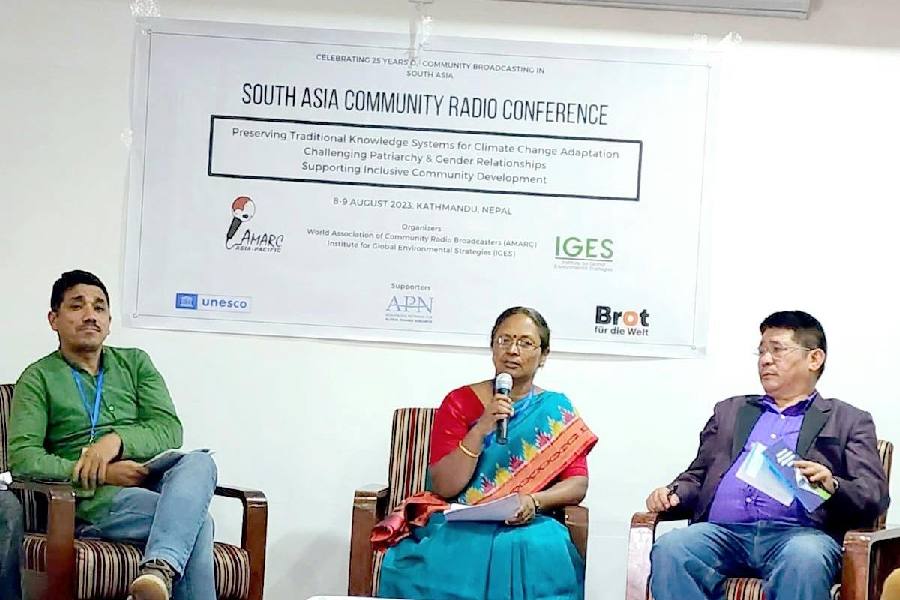The “endangered” language of the Asur, a primitive tribal community of Jharkhand, came up for discussion at an international meet in Nepal at the same time when a two-day Jharkhand Adivasi Mahotsav meant for celebrating the International Day of the World’s Indigenous Peoples began with much fanfare in Ranchi on August 9.
The Asur is a small tribal community belonging to a particularly vulnerable tribal group (PVTG) and their Asur language which has no script of its own was listed by Unesco as a “definitely endangered language”.
“Though I’m here to attend a conference on community radio, we discussed Asur
language because we are running a unique community radio for the revival of that language,” Vandana Tete, a tribal writer who is also the coordinator of Asur Akhra Mobile Radio, said while speaking to this newspaper from Kathmandu.
She was invited by the World Association of Community Radio Broadcasters (AMARC-Asia Pacific) for attending its sub-regional conference that began on August 8 to mark the completion of 25 years of community radio in South Asia.
Asur Radio which started its operation in January 2020 is not a conventional community radio broadcast on a particular frequency. It rather plays pre-recorded infotainment capsules comprising music, traditional stories and local information in Asur language at weekly haats (rural markets) around Netarhat in the Latehar district.
They normally record the contents at a quiet place in the jungle and carry those in pen drives for playing through the public address system at such haats. While the volunteers do such work, recording equipment and a public address system were donated to them by a foundation.
“This unique radio not only helps the Asur community to express their aspirations but also preserve and promote their endangered language and culture,” Tete said while addressing a season of the community radio conference in the Nepalese capital.
Though the 2011 census put the Asur population around 33,000 in India, their radio could cover around 10,000 living in the area around Netarhat.
“This has immensely helped us to generate interest among Asur youths about their own language,” Tete told, adding some of them had also started writing in Asur language, using Devnagri script and a young lady, Asinta Asur, was even invited to an international literary festival in Bhopal earlier this month.
The Asur, an Astro-Asiatic ethnic group, has a rich oral tradition of literary value and some of them were trying to document that treasure through their writings, she further informed.
Many also know the Asurs as ancient metallurgists because they were traditional iron smelters though most of them have now taken up agriculture for eking out a living.
“A community radio in a tribal belt is useless unless that broadcasts in their own language and that hardly happens,” Tete told while addressing a session of the conference that discussed media policy advocacy for strengthening indigenous broadcasting.
They couldn’t run a frequency-based community radio station as it involves obtaining clearance from the government and also a considerable investment, she informed when asked.
“Community radios can run smoothly only when there is a favourable policy and those are economically independent,” Tete told the conference, adding generating revenue posed a big problem.











